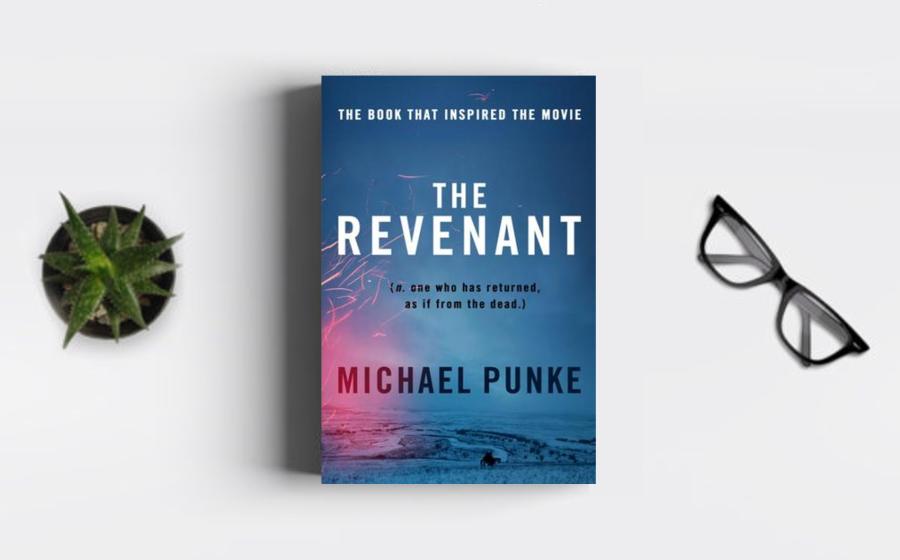"The Revenant" by Michael Punke, published in 2002,
is a gripping and visceral novel that immerses readers
in the harrowing journey of survival and revenge set
against the backdrop of the American frontier in the
early 19th century. Inspired by true events, the book
tells the story of Hugh Glass, a frontiersman left for
dead by his expedition team after a bear attack. Punke's
masterful storytelling, meticulous historical research,
and exploration of the indomitable human spirit have
solidified "The Revenant" as one of the top American
classics of all time.
The novel opens in 1823, as
the Rocky Mountain Fur Company, led by Captain Andrew
Henry, embarks on a perilous expedition into the
uncharted wilderness. Among the men is Hugh Glass, an
experienced frontiersman and trapper known for his
survival skills. The expedition takes a catastrophic
turn when Glass is mauled by a grizzly bear. Severely
injured and on the brink of death, Glass becomes the
center of a moral dilemma for the expedition members,
ultimately leading to betrayal and abandonment.
One of the defining strengths of "The Revenant" is its
portrayal of the unforgiving and majestic American
wilderness. Punke's evocative descriptions transport
readers to the raw and untamed landscapes of the early
19th century, where nature is both a breathtaking beauty
and a relentless force. The harsh conditions of the
frontier become a formidable adversary for Glass,
setting the stage for a survival tale that is as much
about man against nature as it is about man against man.
The novel's exploration of the human spirit's
resilience and determination in the face of adversity
elevates it to the status of a classic. Hugh Glass's
journey becomes a testament to the unyielding will to
survive. Punke delves into the depths of Glass's
character, capturing his internal struggles, pain, and
determination to overcome seemingly insurmountable odds.
The portrayal of Glass's indomitable spirit resonates
with readers on a profound level, inviting contemplation
of the strength that lies within the human psyche.
Revenge is a central theme that propels the
narrative forward. Betrayed and left for dead, Glass's
quest for vengeance becomes a driving force that fuels
his survival in the harsh wilderness. Punke navigates
the complexities of revenge, exploring its moral
implications and the toll it takes on the avenger. The
theme of revenge adds a layer of psychological depth to
the narrative, transcending the traditional survival
story and offering readers a thought-provoking
exploration of justice and retribution.
Punke's
historical research is evident in the novel's authentic
portrayal of the fur trade era and the relationships
between Native American tribes and European settlers.
The interactions between Glass and the Arikara tribe, as
well as other indigenous characters, provide a nuanced
perspective on cultural dynamics and the clash of two
worlds. Punke's commitment to historical accuracy
grounds the narrative in a rich and immersive historical
context, allowing readers to gain insights into the
complexities of frontier life.
The novel's
cinematic adaptation, directed by Alejandro G. Inarritu
and starring Leonardo DiCaprio as Hugh Glass, further
propelled "The Revenant" into the cultural zeitgeist.
The 2015 film, which received critical acclaim and
multiple awards, brought Punke's narrative to a global
audience. The success of the adaptation reinforced the
novel's status as a classic, reaching audiences beyond
traditional literary circles and cementing its place in
popular culture.
Punke's prose style is marked by
its clarity, intensity, and attention to detail. The
author's vivid descriptions of the natural environment,
the struggles of survival, and the emotional turmoil of
the characters create a narrative that is both immersive
and emotionally resonant. Punke's ability to balance
historical authenticity with compelling storytelling
ensures that "The Revenant" remains a captivating read
that transcends its genre.
"The Revenant" by Michael Punke is a timeless American classic that weaves a riveting tale of survival, revenge, and the unyielding human spirit. The novel's exploration of the American wilderness, the psychological complexities of revenge, and the historical authenticity of frontier life contribute to its status as one of the top American classics of all time. Punke's masterful storytelling and meticulous research provide readers with a visceral and thought-provoking experience that goes beyond the traditional survival narrative.






